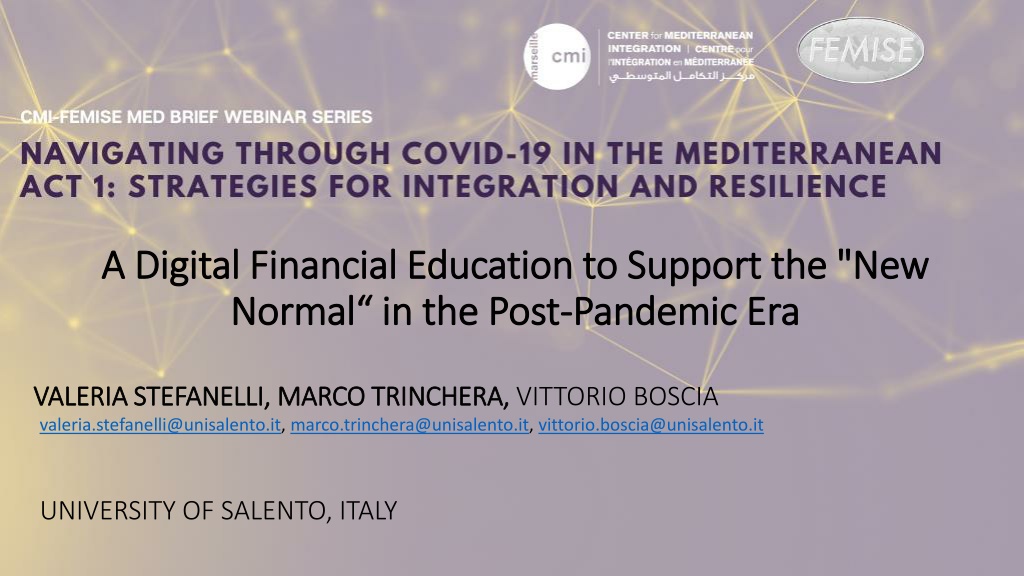
Digital Financial Education in Post-Pandemic Era
Accelerated by the Covid-19 pandemic, the need for digital financial education has become imperative. This contribution explores recommendations to enhance individuals' knowledge on digital payments and online financial channels, aiming to bridge the gap in financial literacy, especially in the wake of the new normal. The disparity in financial education between Northern and Southern European countries, gender differences, and the impact of the pandemic on digital transformation are key areas highlighted. Policy and managerial implications focus on promoting financial education among the youth, adults, and reducing gender inequalities, with suggestions for awareness campaigns and tax relief.
Download Presentation

Please find below an Image/Link to download the presentation.
The content on the website is provided AS IS for your information and personal use only. It may not be sold, licensed, or shared on other websites without obtaining consent from the author. If you encounter any issues during the download, it is possible that the publisher has removed the file from their server.
You are allowed to download the files provided on this website for personal or commercial use, subject to the condition that they are used lawfully. All files are the property of their respective owners.
The content on the website is provided AS IS for your information and personal use only. It may not be sold, licensed, or shared on other websites without obtaining consent from the author.
E N D
Presentation Transcript
A Digital Financial Education to Support the "New A Digital Financial Education to Support the "New Normal in the Post Normal in the Post- -Pandemic Era Pandemic Era VALERIA STEFANELLI, VALERIA STEFANELLI, MARCO TRINCHERA, valeria.stefanelli@unisalento.it, marco.trinchera@unisalento.it, vittorio.boscia@unisalento.it MARCO TRINCHERA, VITTORIO BOSCIA UNIVERSITY OF SALENTO, ITALY
The Covid-19 pandemic has accelerated the digital transformation strategy of firms to support business continuity online, in response to government restrictions The effectiveness of these business strategies depends on the familiarity and awareness of consumers with the use of online channels and therefore with the use of digital payments necessary to conclude transactions in marketplaces The contribution outlines a series of recommendations aimed at elevating and strengthening the degree of Digital Financial Education of individuals
Background (1/2) In Europe, strong disparity between North and South and greater digitization of processes in Northern European countries (DESI, 2020) Knowledge gap on financial education for young people but even more so for adults High gender differences in financial knowledge (OCSE, 2016)
Background (2/2) The pandemic has generated an acceleration of the digital transformation in various economic sectors and in consumer purchasing habits The e-commerce sector has been instrumental in coping with coronavirus restrictions Cash for amounts Card for amounts
Policy and managerial implications Financial education of young people Financial Education Days in Secondary School Programs Advertising campaigns through social networks (Instagram, Tik Tok, Facebook, etc.) Financial education of adults Awareness campaigns, exploiting the television spaces (advertising, ad hoc television programs, etc.) Reduction of gender inequalities Advertising campaigns relating to specific products intended for female audience Tax relief to uniformly spread the use of digital technology in the economy On the side of businesses, banks, and financial intermediaries Promotional campaigns that reduce, in terms of costs, the differences between accepting cash and accepting digital payments


